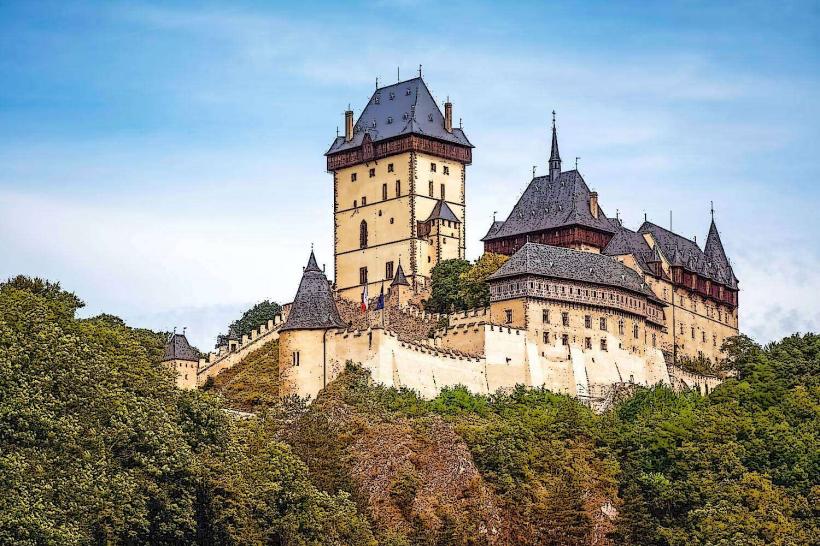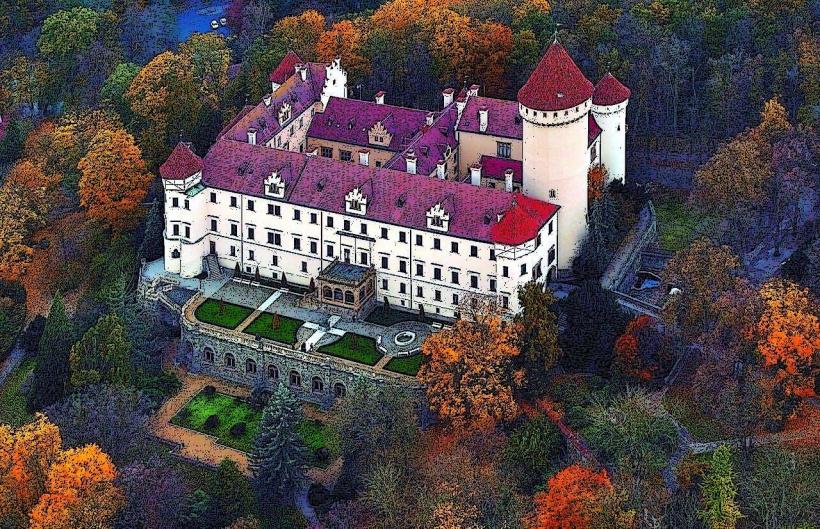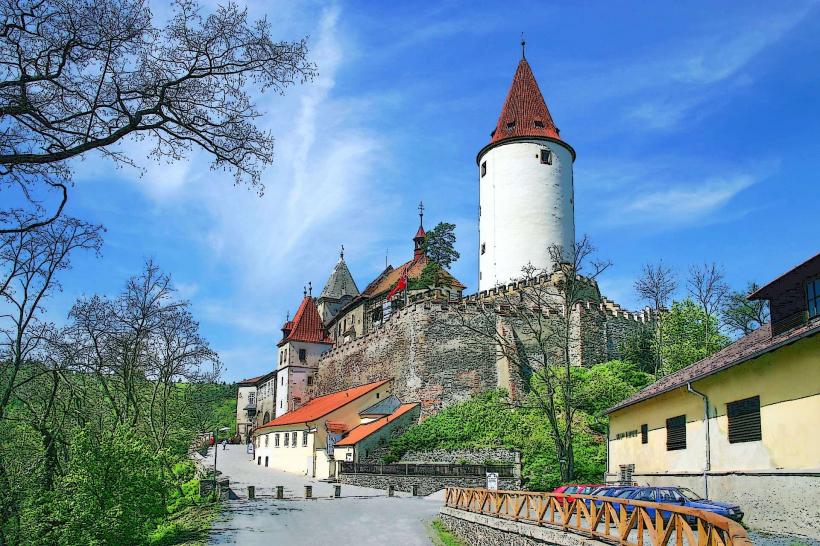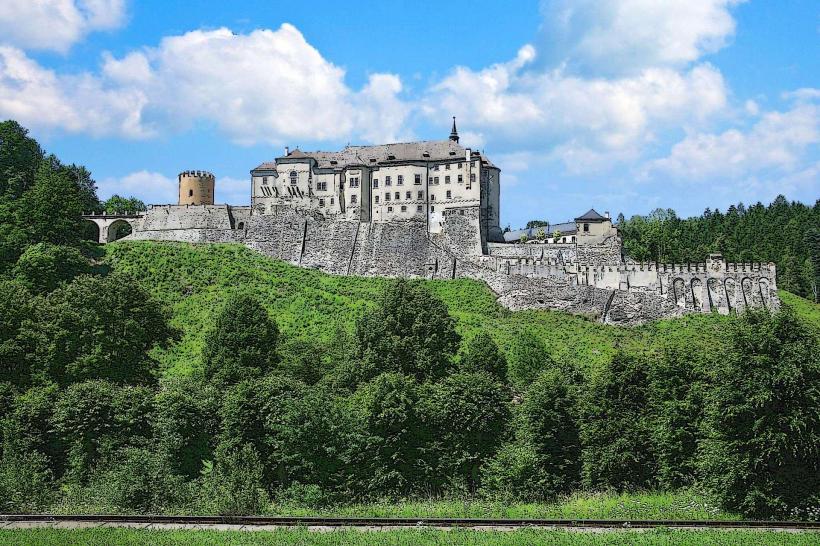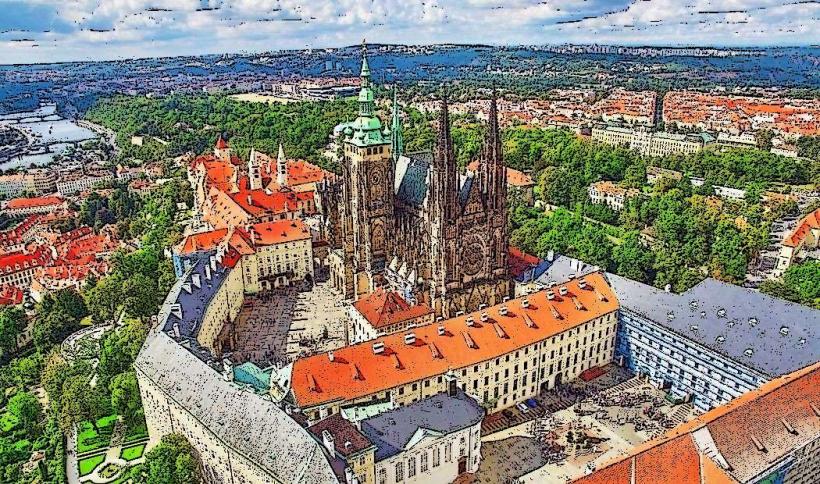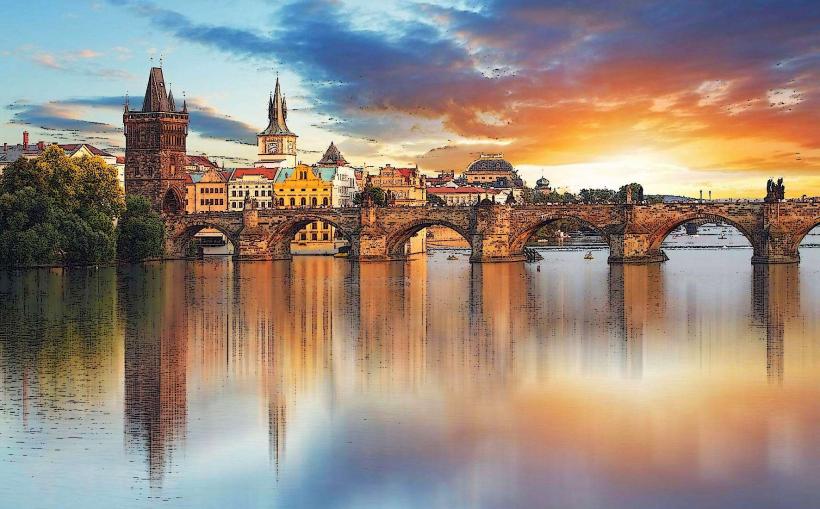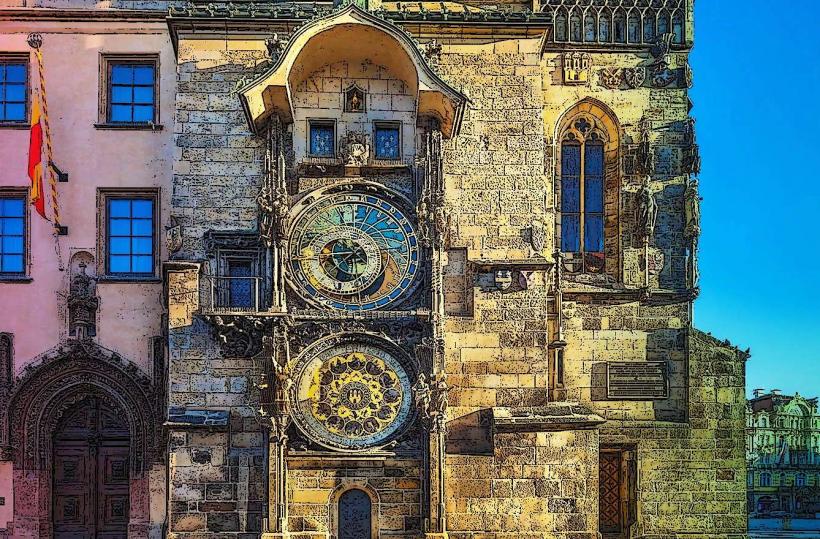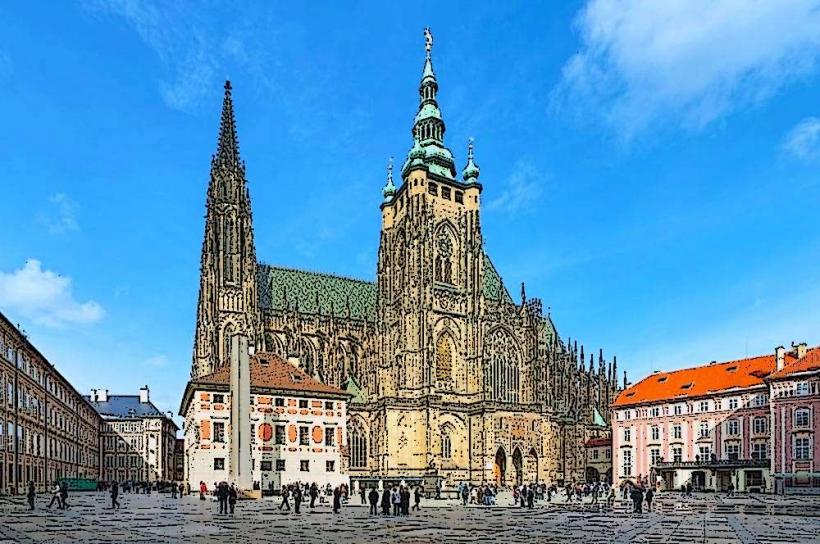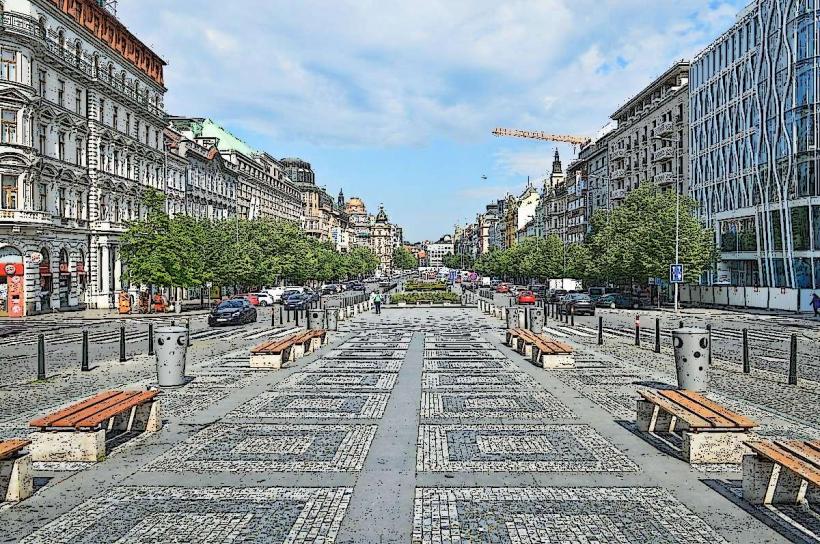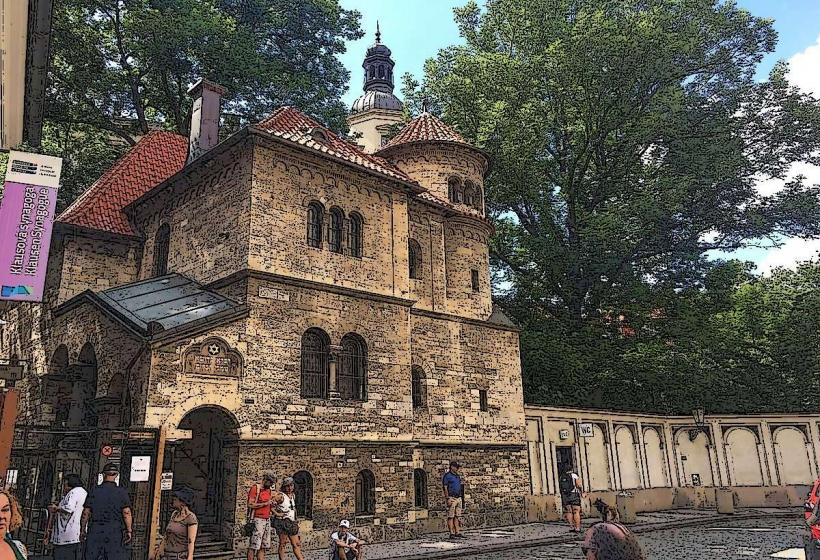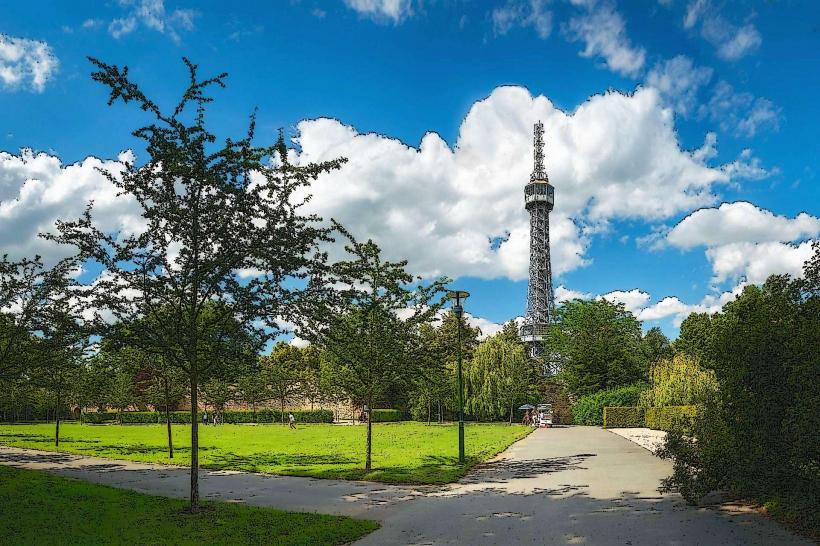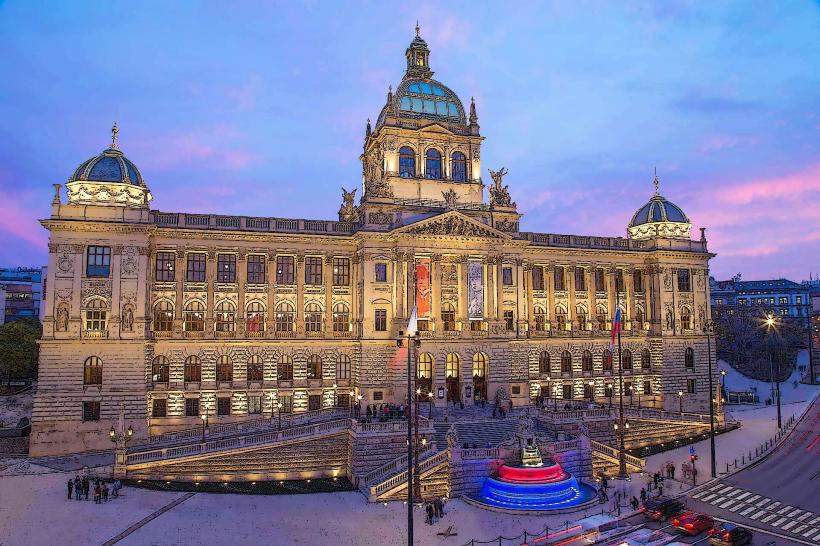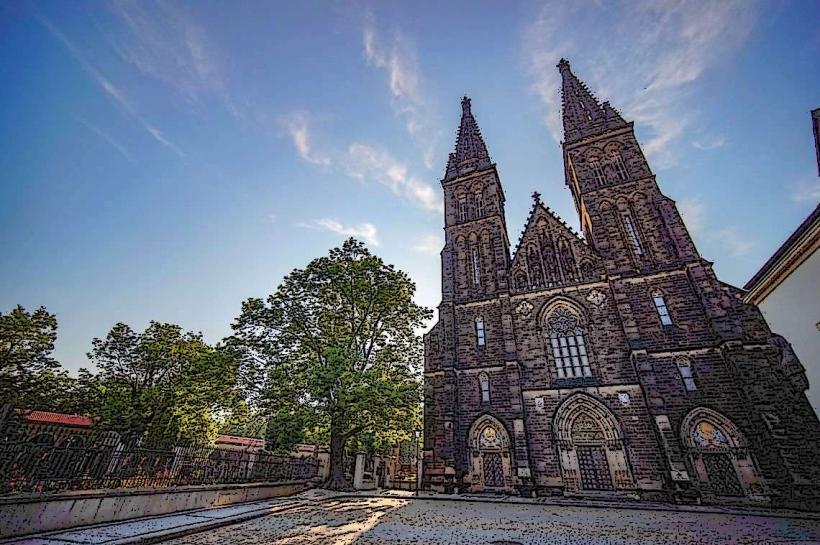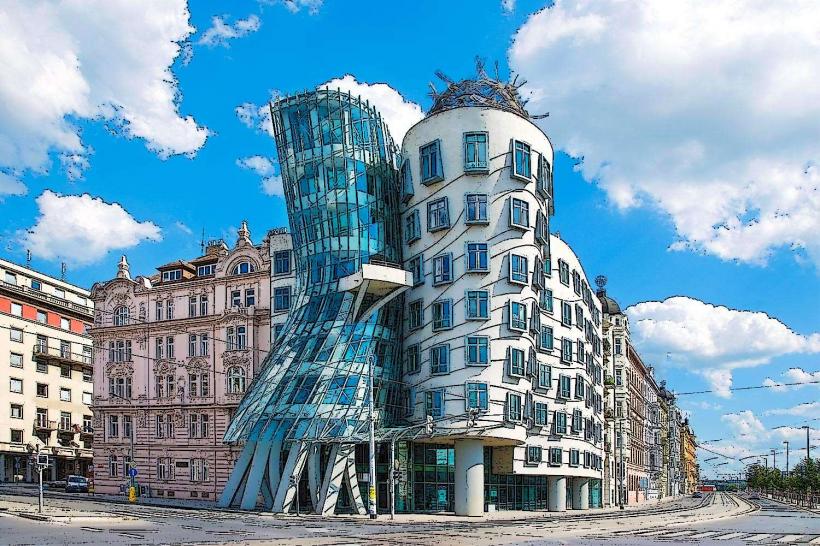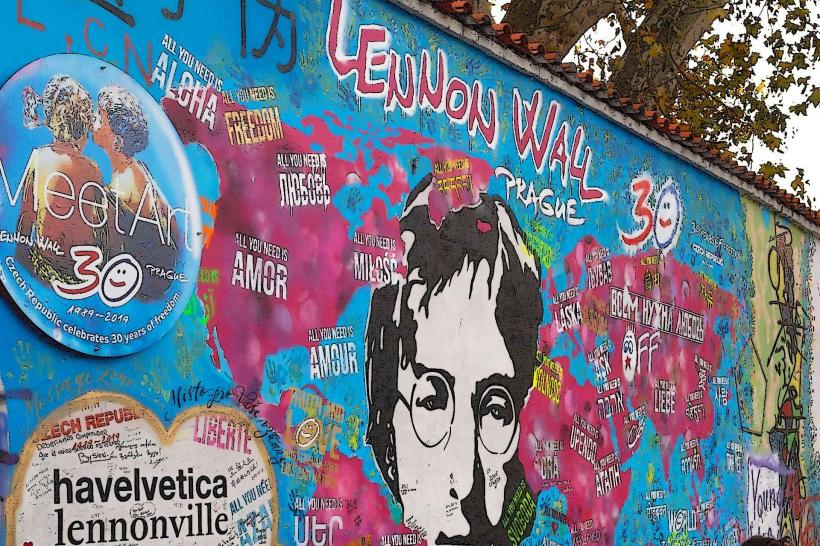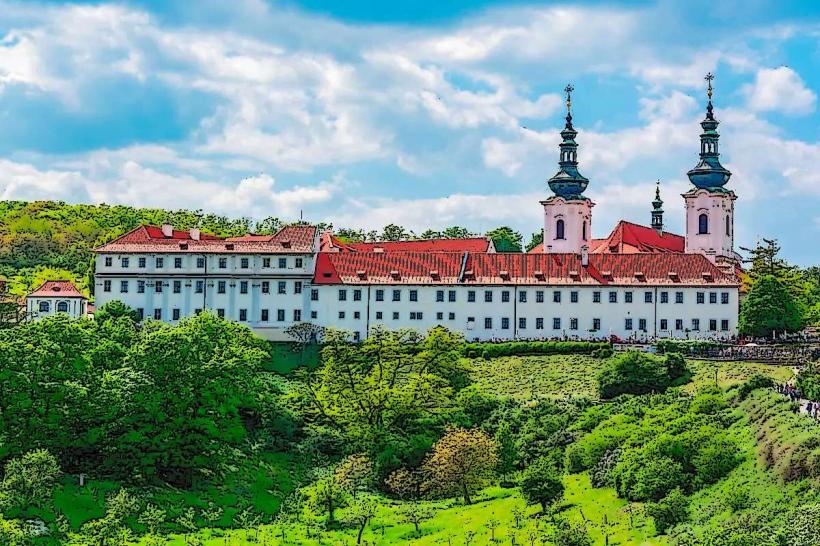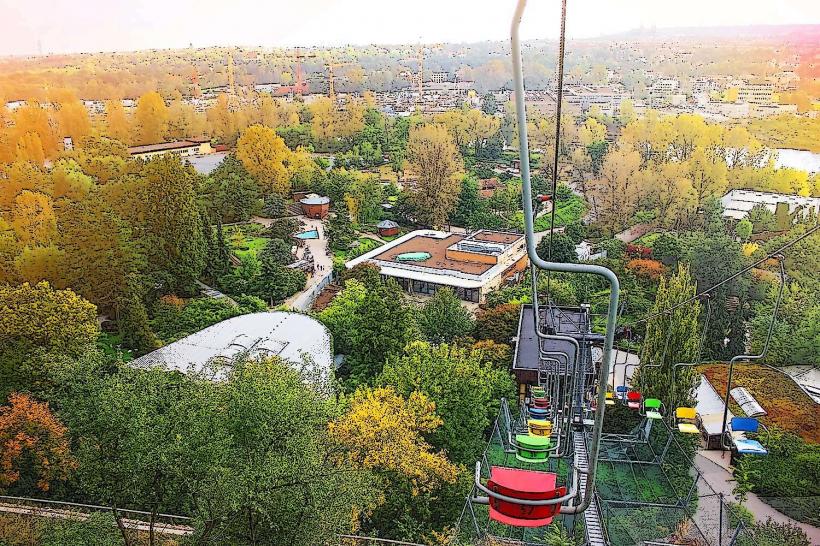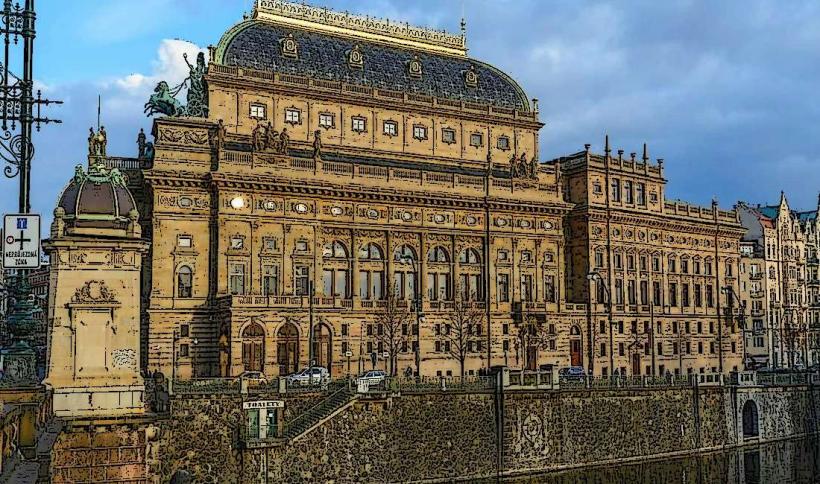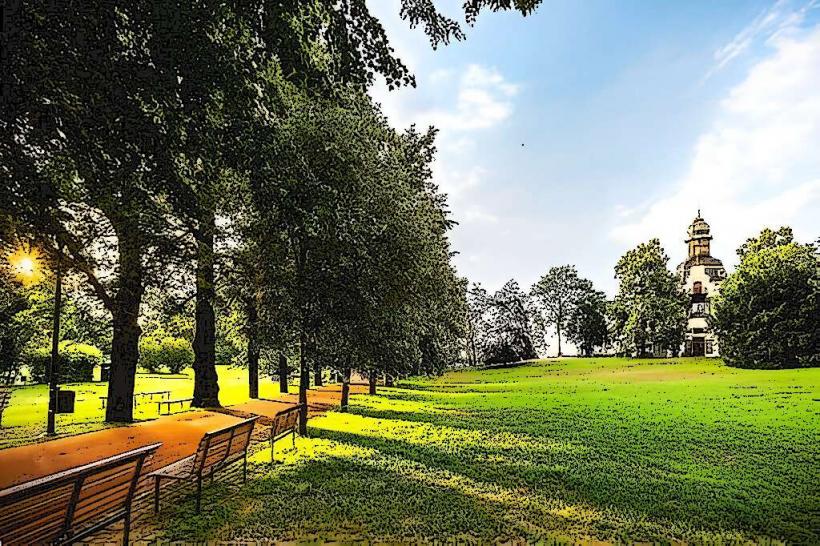Information
Landmark: Kampa IslandCity: Prague
Country: Czech Republic
Continent: Europe
Kampa Island, Prague, Czech Republic, Europe
Kampa Island (Kampa) – Detailed Overview
Kampa Island (Czech: Kampa) is one of the most picturesque and historically significant areas in Prague, located just across the Vltava River from the iconic Charles Bridge. Known for its charming atmosphere, beautiful parks, and historical significance, Kampa Island is a must-visit destination in the heart of Prague. It combines natural beauty, art, and history, offering visitors a unique blend of culture and relaxation in the city.
Location and Geography
- Position: Kampa Island is situated between the Vltava River and the Moldau Canal, which separates it from the Old Town. It is connected to the mainland by several bridges, including the Kampa Bridge and the Velkopřevorský Bridge.
- Size: The island is relatively small, spanning approximately 1.5 hectares in size, but its rich heritage and scenic beauty make it one of Prague's most beloved spots.
- Access: Kampa is easily accessible by foot, and it is located within walking distance of Prague’s most famous landmarks, such as Charles Bridge, Lesser Town (Malá Strana), and the Prague Castle.
History of Kampa Island
Kampa Island has a fascinating history, with several important events tied to its development:
Medieval Origins: Kampa Island's history dates back to the Middle Ages, when it was originally an area of farmland and gardens. The island was inhabited by monks, and it was part of the lands of the Lesser Town’s Benedictine monastery.
16th Century: During the 16th century, Kampa Island became a center of craftsmanship and trade. It also began to attract wealthy residents who built palaces and villas along its waterfront. The mills on the island were also significant at this time, powered by the river's current.
19th Century: In the 19th century, Kampa began to evolve into a more residential area, but still maintained its status as a picturesque and peaceful corner of Prague. Industrialization and the rise of modern Prague affected the island, but it remained a desirable area for both locals and visitors.
20th Century to Present: In the 20th century, Kampa Island underwent changes as urbanization continued in Prague. The island, however, retained its charm, and the area surrounding it was later transformed into one of Prague's most significant cultural districts, with museums, galleries, and green spaces.
Key Attractions on Kampa Island
1. Kampa Park (Kampa Sady)
- Kampa Park is one of the most well-known features of Kampa Island, providing expansive green space for locals and tourists to relax and enjoy the outdoors. The park offers beautiful views of the Vltava River and the Charles Bridge.
- The park is home to a wide variety of trees, flowers, and benches, making it a popular spot for picnics, strolling, and leisurely walks along the riverbanks.
- A distinctive feature of the park is the milestones marking the path along the river, which leads visitors toward other nearby historical sites and attractions.
2. Museum Kampa
- Museum Kampa is an important contemporary art museum housed in a historic mill building on the island. The museum is dedicated to modern and contemporary Czech and international art, and it features a rich collection of 20th-century artworks.
- The museum’s collection includes works by prominent Czech artists such as František Kupka, Otto Gutfreund, and Emil Filla, as well as pieces from international artists. The museum also organizes temporary exhibitions and cultural events.
- The Museum Kampa is not only a place of art but also a cultural hub, hosting various educational programs and art workshops.
3. The John Lennon Wall
- One of the most famous landmarks on Kampa Island is the John Lennon Wall, a tribute to the legendary Beatle John Lennon and his message of peace and freedom. The wall became a symbol of Czech resistance to Communist rule during the 1980s, when young people wrote political messages and Beatles lyrics on the wall as a form of protest.
- Today, the wall is a dynamic, ever-changing canvas for graffiti and street art, with messages of peace, freedom, and social justice continually being added by both locals and tourists.
- The wall remains a symbol of Czech independence and individual expression, and it has become one of the most photographed places in Prague.
4. The Kampa Island Mills
- Kampa Island is home to several historical mills that were once powered by the water of the Vltava River. The most famous of these is the Grand Mill (Czech: Velký mlýn), which was built in the 16th century. Today, the mills are no longer in operation, but their preserved architecture adds to the historical charm of the island.
5. The Charles Bridge
- Kampa Island is directly connected to one of Prague's most famous landmarks: the Charles Bridge. From Kampa, you can enjoy a stunning view of the bridge and Prague Castle. The island’s proximity to the bridge allows for picturesque views of Prague’s Old Town and is a favorite spot for photographers.
Architectural Features
Kampa Island is also home to several historic buildings, including:
- Palaces: Kampa is dotted with historic palaces and mansions, many of which date back to the 16th and 17th centuries. Some of the palaces are open to the public, while others house museums and art galleries.
- Churches: The St. Mary Magdalene Church (Czech: Kostel sv. Máří Magdalény) is a notable Baroque church on Kampa Island. It adds to the island’s architectural beauty and history.
Events and Activities
Kampa Island also hosts several cultural events throughout the year, including:
- Outdoor concerts and theatre performances in the park.
- Street art festivals celebrating Prague’s vibrant art scene, especially at the John Lennon Wall.
- Open-air exhibitions featuring Czech and international artists.
Getting to Kampa Island
Kampa Island is easily accessible from various parts of Prague:
- Walking: The island is within walking distance from major tourist spots such as Charles Bridge and Lesser Town (Malá Strana).
- Trams: Trams also pass near Kampa Island, and the nearest tram stop is Malostranské náměstí, a short walk away.
- Boats: The island is close to the riverbanks, and you can enjoy views of the island from the water, making it a pleasant experience to reach by boat or river cruise.
Conclusion
Kampa Island offers a serene and culturally rich escape in the heart of Prague. With its blend of historical significance, artistic heritage, and natural beauty, it is one of the most captivating spots in the city. Whether you’re interested in exploring art at the Museum Kampa, reflecting at the John Lennon Wall, or simply enjoying the peaceful park with a view of the river, Kampa Island offers a truly unique experience for visitors of all kinds.

